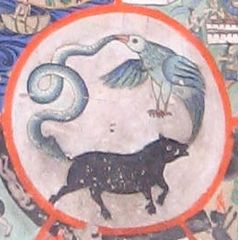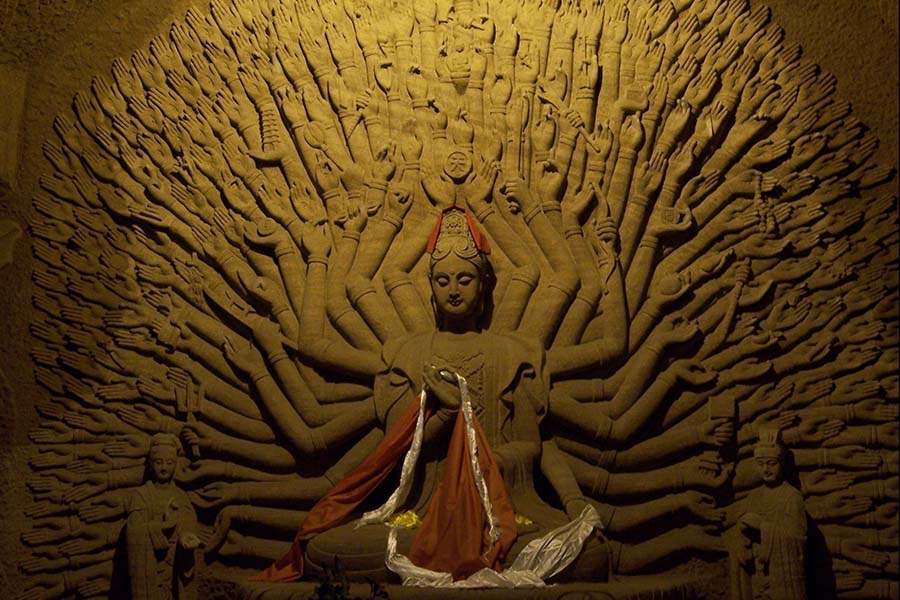Chairs message– December 2022
Once again we enter the season that on the surface seems to be characterised by Greed. A time when we ask for and receive presents and gifts. Over the last hundred years or so, this season of giving seems to have been taken over by commercial interests. There is nothing wrong in giving gifts to people, and often that is what it appears they want. However, businesses have quickly woken up to this, and see this time of year as a time when they can make more money, sell more items, take more money from you and I.
Of course, this was not always the case, and this worldwide buying frenzy started out as a northern lands, mid-winter festival. A time when the cold and dark of the winter was at its worst, the winter equinox. So after this time, things should start to get better as the days lengthen and the weather improves. In ancient times it was called Yuletide, after the Norse God Odin, when a feast and religious festival was held to cheer people up and drive away the winter blues.
But today it can often seem more like the wheel of life, writ large.
I can remember as a youngster, many times over the run-up to the holidays being aware of the mad rush to consume. To buy things for people and the complex nature of that seemingly simple process can take on, when you have to consider not offending people with the size and cost of your gift. It had the potential to became a social nightmare for those around me rather than the fun time it should have been.
Of course, it is not just Greed driving events, but good old Ignorance or delusion and Hatred or anger, get a good look in too. So let’s have a look at how the full set of the three root poisons (triviṣa), that we see at the Centre of the Wheel of Life, play their part.

We are deliberately drawn into ignorance by ‘skillful’ adverts. Those clever marketing people know how to pull us into their alternative world. They try to convince us that happiness only comes by buying their particular product. And of course, we fall for it, the adverts are so well made, they depict a life lived by the rich and beautiful, we are convinced that we too can enjoy such a world. These influences’ all have their effect however we receive them, from posters, TV or social media we buy into their vision of reality.
But why do we do that? It seems that the vision of reality that we have is not strong enough. We can’t quite believe what our own experience tells us. Even as Buddhists, we may have studied the Suttas, read the teachings of the Buddha, listened to a lecture by Sangharakshita, but still we are often fooled. The pretty images and words of the adverts lead us into an imaginary world rather than the True Reality which we experience every day. I was talking to someone a few days ago about the phrase, Guarding the Doors of the Senses. We do need to be careful about what we watch, hear or scroll through, all that input creates the mind, the consciousness that we are.
We, as Buddhists, know that it is Dukkha, the unsatisfactoriness of life, that we are running away from, in all its many forms. We turn away from Dukkha, rather than face it and accept that Dukkha is the nature of experience. So we turn away from our own lived experience, and seek to find refuge or solace in the imaginary world of material possessions. An imaginary world which plies us with the false message that more things equates to greater happiness.
So finally, where does hatred come in to the picture? There is a tendency towards self-hatred at this time of year. Suicides and attempted suicides peak now. Because the imaginary world that the adverts tell us we should be enjoying may not exist for us. If we cannot afford the product or live the life that is portrayed in the sales pitch, then we can be deluded into thinking that we are not worthy or even happy. Also at this time of year domestic abuse cases rise by over 30%, and dislike and hatred of other people, even those closest to us, comes out in anger reactions. Instead of owning and taking responsibility for where we find ourselves, we blame others for our apparently imperfect world and therefore turn to hating them for our own internal sense of ‘lack’ or ‘happiness’. So for many it is not a time of ‘Good cheer’, quite the opposite.
But Reality is not like that, because Reality cannot be bought. It is not a product made in a factory or a service that you must sign up to. Reality is free to all, it is the direct experience of this beautiful world around us.
But that erroneous thought, that happiness can be bought, is ultimately what we are sold, the goal of happiness. But deep down we know that eventually all gifts, all possessions disappoint.
The only gift that is worth giving, a gift that will last, is this understanding of the nature of Reality. The gift of the Dharma. Happiness can never be bought. Happiness is a by-product of leading a contented life, a life lived with true purpose, it cannot be a goal. In fact the Buddha taught the opposite; that Renunciation, giving up things is the way to a contented life, the way that brings with it a deep, long-lasting, happiness.
It is interesting to reflect at this point on the symbol that Sangharakshita used to characterise the Triratna Order. That symbol is the Thousand armed Avalokiteshvara. Each arm represents an Order Member and each hand holds a simple gift. And that gift is given in the deep understanding of the gift that is really required by the recipient. A gift that will help the recipient progress on their spiritual path, their path to Enlightenment, however they may formulate it.
So we do know that an Air-Fryer or games console will not solve the financial difficulties that people feel, or the loneliness of someone who feels they have lost all their friends. But generosity plays a large part in Buddhism and the life of a Buddhist. True self-less generosity, without expecting any return, without any baggage, but just the joy of giving. It is only an enlightened being that can give truly selflessly, but we can at least do our best as trainee bodhisattvas. So when you feel like giving a gift, look inside and see what is your state of mind, what is your motivation for giving the gift?
If the gift comes wrapped in metta, with a Bodhisattva spirit then the gift will be transformative for both the giver and the gifted, because that gift will come with a bonus gift the gift of the Dharma.
The Ipswich Buddhist Centre is a place that contains that form of generosity, a self-less generosity. It has a Sangha that is generous towards itself but also towards others outside that Sangha, those that may be in dire need in Ipswich and beyond.
I witness many acts of generosity around the Centre. From the Order Members who give their time and friendship without reward, and many others who support and even run events that bring delight to many in the Sangha. So Saddhu to you all for you efforts to give, and give freely without greed, hatred and delusion.
So do come along to the Centre on these dark nights and days and warm the place with your generosity in its many forms, and receive openly the gift that the Centre can give, the Dharma.
Bodhivamsa


